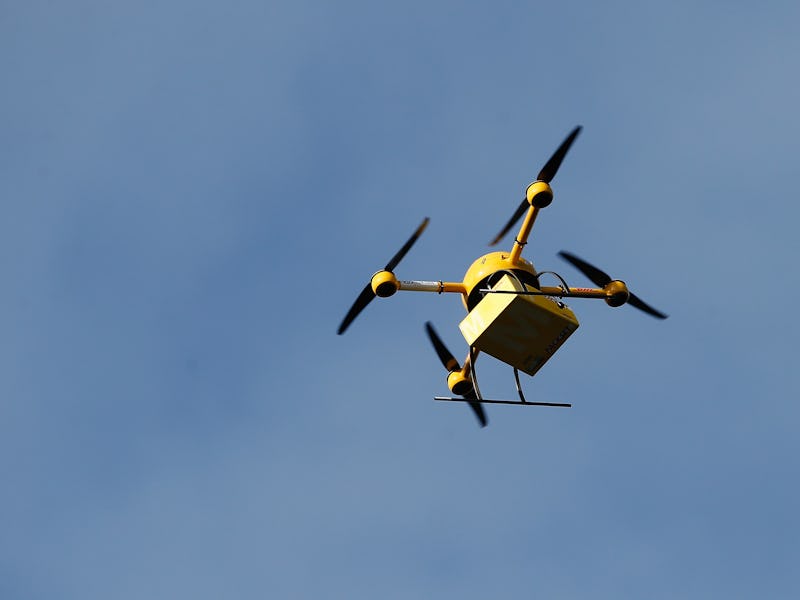These New FAA Rules Completely Crush Drone- Delivery Dreams
It seems as though your packages won't be arriving via drone anytime soon, thanks to new updates and rules from the FAA.

Regardless of where the public stands on drones as everyday tools, the final say on regulation comes from the U.S. Department of Transportation’s Federal Aviation Administration. While drones might be effective in same-day delivery becoming a common reality, they’re also considered intrusive, and there are dozens of cautionary measures implicit in order to put delivery bots over American airspace.
In response to that ever-present problem, the FAA released a new set of rules that have likely shot down the hopes of companies like Amazon and DHL. While the FAA seems to approve of unmanned aircraft systems flying over short distances, a strict rule has been set against long-distance flights. Basically, if the person flying the drone can’t see it, they can’t fly it. U.S. Transportation Secretary Anthony Foxx shifted the focus toward other occupations and situations where drones might come in handy. “We are part of a new era in aviation, and the potential for unmanned aircraft will make it safer and easier to do certain jobs, gather information, and deploy disaster relief,” said Foxx in a press release today.
Don’t despair: according to both the release and the rule summary itself, these are good measures for both the economy’s growth and job creation. The FAA says that the rule could generate more than $82 billion for the U.S. economy and create more than 100,000 new jobs over the course of the next decade. Other regulations fall in with commonsense law: the drone’s pilot must be over the age of 16 and either posses a remote pilot certificate with a small UAS rating, or fly under the supervision of someone who has one. Getting a remote pilot certificate is about as difficult as obtaining a driver’s license — those looking to obtain one must either pass an initial aeronautical knowledge test at an FAA-approved knowledge testing center or have an existing non-student Part 61 pilot certificate.
The way this directly affects Amazon and other services that plan on carrying out delivery by drone is still under scrutiny, and the release makes it pretty clear that more measures and changes are being considered for this specific reason. So while it looks like you won’t be receiving any vegan milk cartons by drone anytime soon, the potential for that service is still there. “With this new rule, we are taking a careful and deliberate approach that balances the need to deploy this new technology with the FAA’s mission to protect public safety,” said FAA Administrator Michael Huerta, before acknowledging the ongoing process. “But this is just our first step. We’re already working on additional rules that will expand the range of operations.”